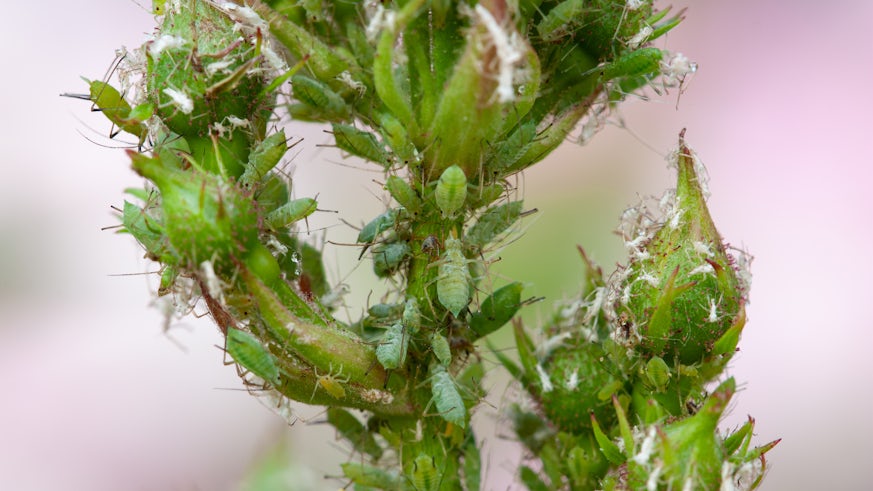Safe pesticide replacements in the pipeline
9 March 2020

Cardiff University researchers have discovered a cost-effective and scalable method to produce terpene analogues for use as a green alternative to pesticides.
Plants produce terpenes, naturally occurring chemical substances that repel pests as a biological defence. Terpenes are responsible for the heavy aroma and pungent flavours of their host. By harnessing these ‘odours’ (volatile organic compounds), new environmentally friendly repellents and attractants are being developed for insect management.
As alternatives to traditional pesticides, these molecules naturally drive herbivorous insects away from crops, attract predators including parasitic wasps, and maintain a healthy balance of pollinators. Terpenes also have vital pharmaceutical applications including in the development of life-saving antimalarial drugs.
Extracting natural terpenes from plants can be expensive and unsustainable due to the supply being affected by several external factors, including plant disease and weather conditions.
Terpenes have also been difficult to make synthetically in the lab, with the process often time-consuming, expensive, and unfeasible at the scale required for industrial use such as crop protection.
In a new study, scientists from Cardiff University’s School of Chemistry have found a way to produce terpene analogues using relatively cheap materials that are suitable for large-scale production.
The team, led by Professor Rudolf Allemann, has produced a variety of terpene molecules including the whitefly repellent 7-epizingberene and the aphid repellent germacrene-D. They have also created an aphid attractant, 14,15 dimethylgermacrene-D, which can be used to lure pests into trap devices or onto sacrificial plants from where they can be easily removed.
The researchers are currently using their method to produce quantities of compounds for field trials of novel agrochemicals, which was not possible using earlier chemical methods.
Professor Rudolf Allemann said: “A move towards environmentally sustainable alternatives is essential if we are to mitigate against the damage caused by current pesticides and to continue producing the quantities of crops needed to support the world’s growing population.
We hope to create a variety of valuable compounds for products beyond agrochemicals for pest control, including pharmaceuticals. In principle, we can look to develop analogues of any terpene product using this simple and cost-effective method.”
Postdoctoral Research Associate, Dr Luke Johnson said: “The ease of the method now makes terpene molecules readily available in quantities sufficient for researchers to test their activities and find tomorrow’s medicines or agrochemicals. We expect that this method will become standard practise within academia and biotechnology.”
The team’s latest work will screen enzymatically produced terpene analogues and look for responses in aphids.
This research was supported through grants from the U.K. Biotechnology and Biological Research Council (BBSRC).